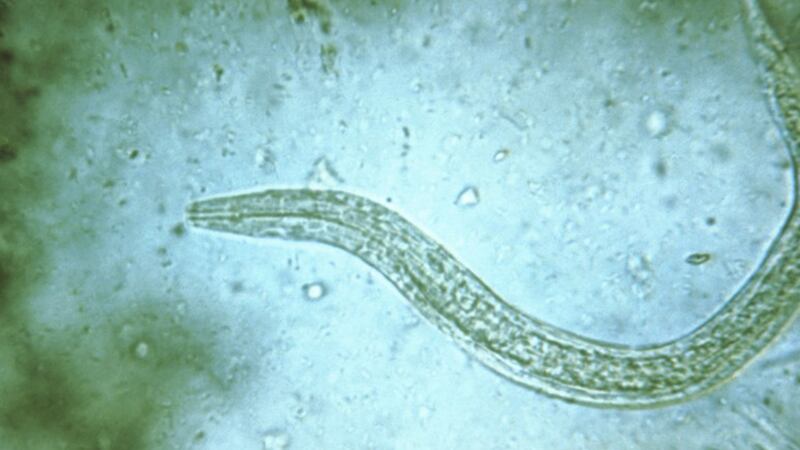A sushi-loving California man with a habit of consuming raw salmon recently pulled out a 5-foot tapeworm from his own body.
According to Dr. Kenny Bahn, who treated the man in August and revealed the case on a Jan. 8 episode of the medical podcast "This Won't Hurt a Bit," his patient thought he was dying.
TRENDING NOW:
- Government shutting down amid partisan standoff
- Roethlisberger named in porn star's interview about Donald Trump
- Attorney: Delta passenger bitten by emotional support dog couldn't escape
- VIDEO: Tom Petty Death Caused By Accidental Drug Overdose
"He asked me for worm treatment and I was like, 'Oh, not an everyday request,'" Bahn said on the podcast, skeptical about the patient's self-diagnosis.
It started with abdominal cramps and escalated to bloody diarrhea. Then, the man told Bahn, when he went to the bathroom, "I looked down and it looked like there was a piece of intestine hanging out of me."
Though the visual is horrifying, the man was relieved to find it wasn’t a part of his own intestines.
Instead, it was a 5-and-a-half foot tapeworm “wiggling” out of his body, likely a result of the man’s daily consumption of raw salmon, Bahn said.
In January 2017, experts with the Centers for Disease Control and Prevention warned that eating raw or undercooked fish heightens the risk of developing an infection from parasites, including Diphyllobothrium nihonkaiense, or the Japanese broad tapeworm. And wild salmon caught in Alaska had also been infected.
Doctors warned that eating raw salmon in the United States, particularly along the Pacific Coast, may increase risk of those Japanese tapeworm parasites.
According to the CDC, the Japanese tapeworm and related species can grow up to 30 feet long.
Not everyone infected with the tapeworm will have symptoms, but some common signs and symptoms of a Diphyllobothrium infection can include abdominal discomfort, diarrhea, vomiting and weight loss.
In some cases, complications can lead to intestinal obstruction and gall bladder disease, according to the CDC.
Once diagnosed, a health care provider prescribes an effective medication, typically a pill, to kill the parasite.
Listen to the full "This Won't Hurt a Bit" podcast featuring Banh at wonthurtabit.com.
Cox Media Group







